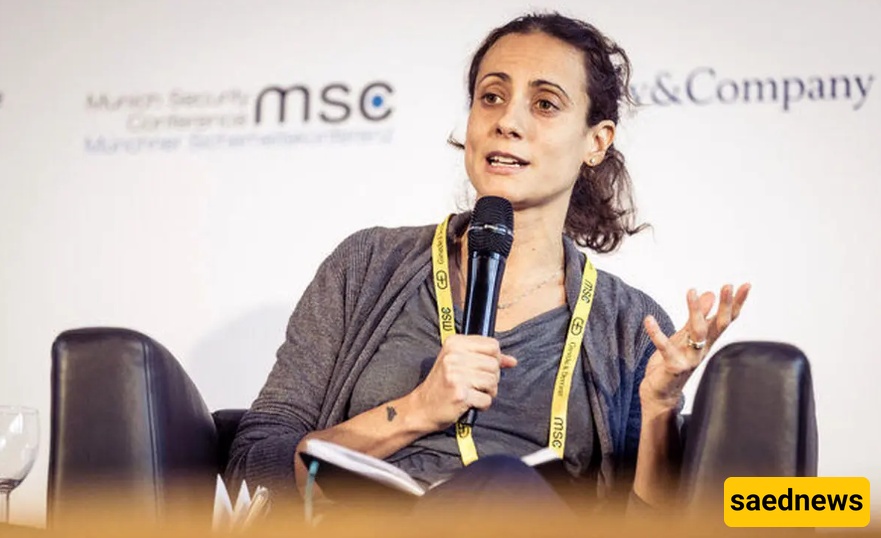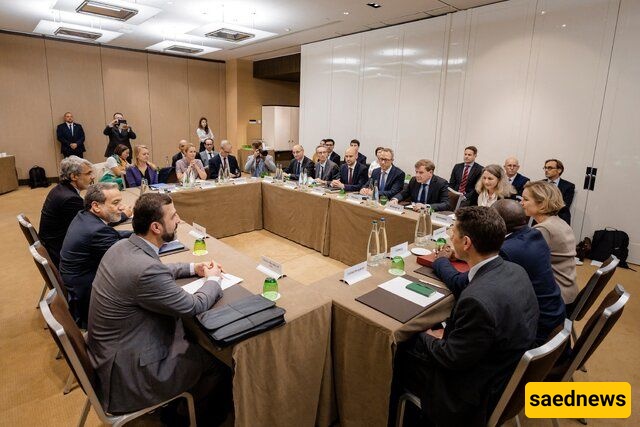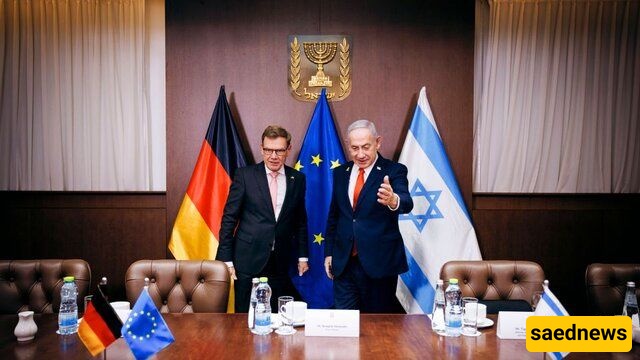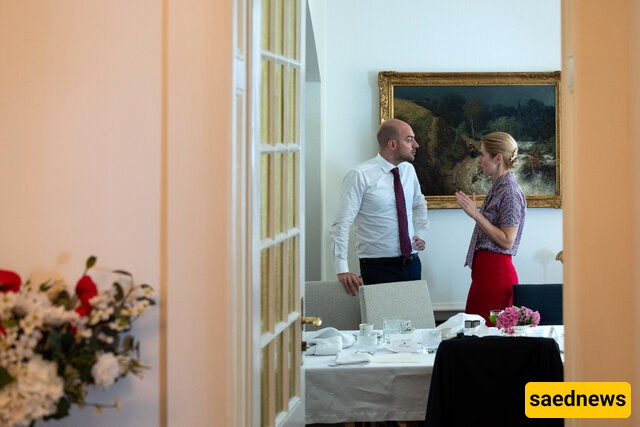SAEDNEWS: The European Union’s foreign policy chief, in a detailed analysis examining the consequences of the recent war between Iran and the Zionist regime, warned that Europe’s new approach toward Tehran has seriously strayed from the path of diplomacy.

According to Saed News, Nataly Tocci, director of the Italian Institute for International Affairs, professor at the European University Institute’s School of Transnational Governance, and special advisor to Federica Mogherini, former EU High Representative for Foreign Affairs, warned that Europe’s new approach toward Tehran has seriously diverged from the path of diplomacy and has increased the risk of the return of United Nations sanctions.
In a note published on the World Politics Review website, Tocci wrote: “The Iran-Israel war ended in June, but its outcome was a false calm. Apparently, with the aim of destroying Tehran’s nuclear capabilities, Israel, supported by the United States, attacked Iran. The U.S., claiming to reduce tensions, directly entered the conflict using bunker-buster bombs. Eventually, a ceasefire was established. The U.S. and Israel, based on the damage inflicted on Iranian facilities and military capabilities, consider this war to have weakened Tehran and believe Iran is now more willing to return to the negotiating table. However, contrary to the claims of the U.S. and Israel, Iran views this war as a demonstration of its resilience and of the limitations of Israel’s military power.”
According to her, neither side considers itself a winner or even a loser, which could help sustain the ceasefire, but both Tehran and Tel Aviv believe that the ceasefire will not last and are preparing for the next round of conflicts.

Under such circumstances, Tocci, referring to Europe’s destructive role against Iran and its support for the crimes of the Zionist regime against the Iranian nation and its territorial integrity, emphasized: “Europe, which played no meaningful role in preventing, limiting, or ending the war, must now act to stabilize the ceasefire. This means reviving past multilateral initiatives and creating new channels for engagement with Iran. However, over the past month, instead of this approach, Europe has focused on threatening to reimpose United Nations sanctions—an action that could be the final nail in the coffin for the nuclear deal (JCPOA).”
She noted that the European Union is usually known as an “economic giant and geopolitical dwarf” and wrote: “The Iran nuclear dossier was an exception. Negotiations with Iran began in 2003 and the European troika format (UK, France, and Germany) was established. A year later, Javier Solana, the EU’s first High Representative for Foreign Affairs, joined the talks. Then this format expanded to the P5+1, including China, Russia, and the United States. In 2015, Federica Mogherini, the EU’s third High Representative for Foreign Affairs, succeeded in finalizing the JCPOA.”
Tocci added: “Europe’s three main objectives in those years were: to contain Iran’s nuclear program, demonstrate the effectiveness of multilateral diplomacy, and build a pathway for the United States to return to negotiations after the unilateralism of the George W. Bush administration. Historical experience showed that a military alternative is ineffective; just as Israel’s 1981 attack on Iraq’s Osirak reactor neither stopped Baghdad’s nuclear program nor delayed it but rather accelerated it.”

Tocci, citing the now-rejected claim of “Iran’s military cooperation with Russia in the Ukraine war,” described Europe’s approach by asserting: “Russia’s invasion of Ukraine in February 2022 changed Europe’s view of the Middle East and the Global South. Iran’s military cooperation with Russia caused Tehran to be seen as a potential enemy. Iran’s withdrawal from the JCPOA revival talks and its handling of domestic protests further reinforced this perspective. Hamas’s attack on Israel in October 2023 also led Europe to offer unconditional support to Tel Aviv.”
This claim comes despite the fact that Iran has consistently supported peace in Ukraine and has denied any role in this bloody war.
On the other hand, Tocci’s allegation that Iran “withdrew” from the JCPOA revival negotiations stands in contrast to admissions by American officials who acknowledge that it was the US and Europe who obstructed the talks.
Nonetheless, Mogherini’s advisor wrote about Europe’s anti-Iranian stance on the continent: “Initially, this shift manifested as passivity. When Trump was re-elected and expressed willingness to revive diplomacy with Iran, Europe made no effort to reactivate the European Troika and the EU format. Then, this passivity turned into an aggressive position; where Europe not only refrained from condemning Israel’s attacks on Iran but justified them by citing Israel’s ‘right to self-defense.’ This was despite the fact that during its formation, the European Troika and the EU opposed preemptive wars.”

According to Tocci, although the war has ended, the ceasefire remains very fragile.
Referring to recent negotiations between the European Troika, the European Union, and Iran in Istanbul, she wrote: “Europe, along with the United States, has threatened that if no progress is made by August, the snapback mechanism will be activated and UN sanctions will be reinstated. If the assumption of Iran’s weakness is incorrect, this threat will have the opposite effect and could even undermine the legitimacy of the Security Council; since Russia, China, and many countries in the Global South consider this action illegal.”
Tocci emphasized: “Instead of pursuing unrealistic goals such as the complete cessation of Iran’s enrichment and linking the nuclear issue to the missile program, Europe should use its limited influence to encourage Tehran to resume cooperation with the International Atomic Energy Agency, prevent Iran’s withdrawal from the Non-Proliferation Treaty, and support the return of diplomacy between Iran and the United States. These objectives may be smaller than past successes, but this diminished role is the result of Europe’s own choices.”

